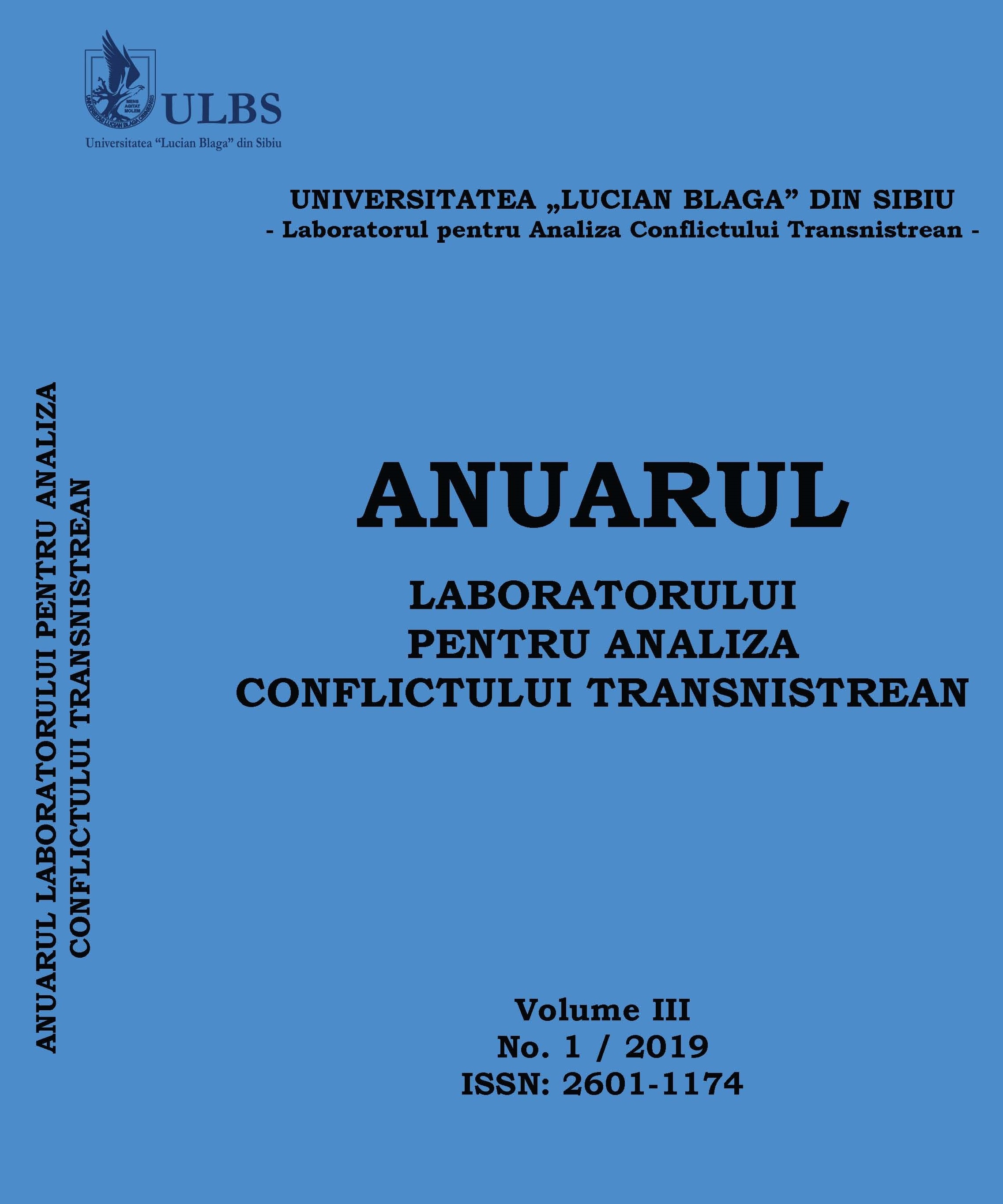STRATEGII ŞI TACTICI DE SOLUŢIONARE A CONFLICTELOR TERITORIALE DIN REPUBLICA MOLDOVA ȘI GEORGIA PRIN PRISMA DREPTULUI INTERNAŢIONAL
STRATEGIES AND TACTICS FOR SOLVING TERRITORIAL CONFLICTS IN THE REPUBLIC OF MOLDOVA AND GEORGIA FROM THE PERSPECTIVE OF INTERNATIONAL LAW
Author(s): Diana Bencheci, Bencheci Marcel, Alexander KURTSKHALIASubject(s): International Law, Government/Political systems, International relations/trade, Security and defense, Military policy, Welfare systems, Peace and Conflict Studies
Published by: Editura Universitatii LUCIAN BLAGA din Sibiu
Keywords: Transnistrian conflict; Georgian conflicts; International law; Geopolitical interests; Russian Federation;
Summary/Abstract: Solving of territorial conflicts is impossible not only without removing the objective bases of the confrontation of the conflicting parties, but also without identifying the divergences between the participants in the conflict and the international community participating in its resolution. In this context, the Transnistrian and Georgian conflicts should be regarded as some politico-territorial and international, taking into account the dynamics of the changes of geopolitical interests of the great powers at regional and continental level. In both territorial conflicts there were serious violations of the norms of international law: in the case of the Abkhaz-Georgian conflict, the principle of non-aggression or non-force in international relations was violated. In the case of the Transnistrian conflict, in our view, the violation of the principle of non-intervention, the principle of respecting the sovereignty and territorial integrity of the states and the principles of conducting negotiations can be attested. In no case has an adequate reaction of the international community been registered - to hold them accountable and to sanction them. Both conflicts raised the question of the practical efficiency of the international legal norms in the field and of the main international structures responsible for peace and security in the world. In both cases the military forces of the great powers continue to be in the territory of the opponent in conflict, which is likely to keep the conflict in a latent form.
Journal: Anuarul Laboratorului Pentru Analiza Conflictului Transnistrean
- Issue Year: III/2019
- Issue No: 1
- Page Range: 9-24
- Page Count: 16
- Language: Romanian

